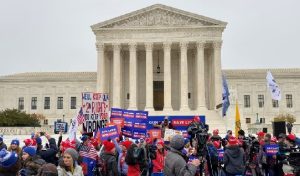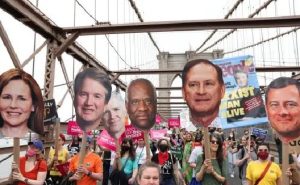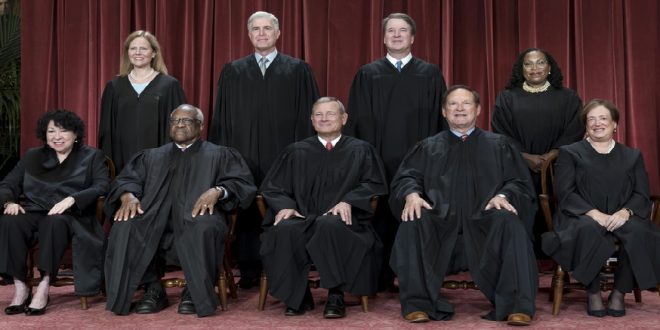15-11-2023
WASHINGTON: The US Supreme Court on Monday released its first ever set of ethics rules governing its nine justices.
The nine-page “code of conduct” comes as the most powerful legal body in America is under increasing scrutiny following recent news reports of gifts and holiday arrangements lavished on several of its jurists.
 While federal judges on lower courts have been governed by an ethical code since 1973, this marks the first time the country’s highest court has set out its own rules.
While federal judges on lower courts have been governed by an ethical code since 1973, this marks the first time the country’s highest court has set out its own rules.
The court had released a “statement on ethics principles and practices” earlier this year, but Monday’s release provides significantly more detail.
In a paragraph introducing the guidance, the justices said that they had long abided by unwritten ethical rules derived from a variety of sources, including the lower-court code.
They said the absence of explicit rules, however, led to the “misunderstanding” that justices viewed themselves as unrestricted by any ethical guidelines.
The code contains no enforcement mechanism. Justices will have to choose to abide by its “rules and principles”.
“It’s only a half-measure, at best,” says Steve Vladeck, a professor at the University of Texas School of Law, who has written extensively about the US Supreme Court.
“Even the most rigorous ethics rules don’t mean much without some means of ensuring that they’re followed.”
 He notes, however, that the new rules do show that the justices are aware that their ethics are a matter of significant public concern – and that they had to do something to respond to recent critiques.
He notes, however, that the new rules do show that the justices are aware that their ethics are a matter of significant public concern – and that they had to do something to respond to recent critiques.
The rules are divided into four main sections outlining how justices should behave, perform their duties, and conduct themselves in non-judicial and financial activities
Justices are advised to consider whether speaking at an outside event “would create an appearance of impropriety in the minds of reasonable members of the public”.
The guidance goes on to note that most academic, legal, religious or cultural associations would not present such a problem, while events affiliated with political parties or campaigns would.
The court also set out circumstances under which justices should disqualify themselves from participation in a case. Those include when a justice has a bias or prejudices concerning a party to the case or has a financial or other interest that could be “affected substantially” by the outcome of the proceedings.
Earlier this year, the media organization ProPublica published an investigative report on the relationship between Justice Clarence Thomas and wealthy conservative activist Harlan Crow. (Int’l Monitoring Desk)
 Pressmediaofindia
Pressmediaofindia




